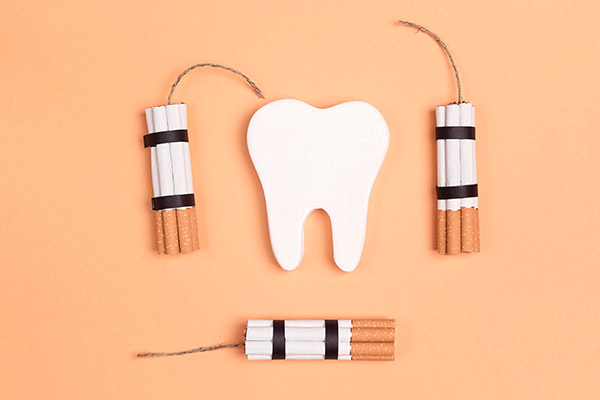For Effective Preventive Dentistry You Must Avoid These Bad Habits

Practicing preventive dentistry is an effective way to establish good oral health. Strict personal oral hygiene practices result in fewer dental problems. Strengthening these practices with regular dental appointments makes preventive dental care even more efficient. Preventive dentistry becomes even more effective by avoiding some bad habits.
Nail-biting
This habit increases the risk of chipping teeth. It also introduces bacteria from under the nails into the mouth. Once additional bacteria invade the mouth, the person is at risk for more ailments. Trimming nails every other day helps break this habit. Applying nail polish on the nails can also help. The bitter taste of the nail polish discourages nail-biting.
Skipping brushing or brushing too hard
Brushing teeth in the morning and before bed is a good oral care practice. One can enhance this by brushing after every meal. Regular brushing can help strengthen preventive dentistry practices. Skipping the habit of brushing teeth gives a chance for plaque to stay longer on teeth. This results in tartar formation, periodontitis, and tooth loss.
A moderate degree of brushing cares for teeth and gums. Brushing too hard irritates gums and strips off the enamel of teeth. It also results in gum recession. Intense brushing opposes the main purpose of preventive dentistry. Using a toothbrush with soft bristles is enough to clean teeth. Spending two to three minutes brushing in a circular motion is ideal.
Drinking sweet beverages
Sugary drinks are addictive. That is why it is so easy for them to damage teeth. The carbohydrates in these drinks feed the bacteria in the mouth. This encourages more plaque to grow at a faster rate. Gum disease and tooth decay happen over time. Preventive dentistry practices involve drinking water more often.
Placing hard and inedible objects in the mouth
Chewing ice, holding keys with teeth, biting pencils, and keeping toothpicks in between teeth oppose the purpose of preventive dentistry. These habits damage teeth, promote tooth decay, and create problems in the jaw. It is more practical to stop chewing hard objects or carry a bag for holding items. Stopping these habits may take time, but the results will be rewarding.
Using tobacco
Quitting smoking and other tobacco products is a difficult habit to break. However, this habit can cause severe damage to a patient's teeth and gums. This damage includes:
- Staining and discoloration
- Periodontal disease
- Gum recession
- Oral cancer
- Reduced saliva production
- Bad breath (halitosis)
Quitting tobacco use can help protect the patient's oral and overall health.
Consuming acidic foods and beverages
Drinking acidic beverages and eating acidic foods weaken the teeth. Soda, citrus juices, coffee, and tea are rich in acids. The same goes for lemon or vinegar-based dressings and dips. Additional sugars feed bacteria, encouraging the release of more acids. These substances are not welcome in preventive dentistry. The acids from them strip off the protective enamel layer of the teeth.
Preventive dentistry is more effective without these bad habits
Stopping these habits can protect your teeth, gums, and overall health. It may take some effort to give them up, but it will be worth it in the long-term. The Inna Goykman-Amir DDS team is here to help you quit these habits. Call our office to learn more.
Request an appointment here: https://www.myddsny.com or call Inna Goykman-Amir DDS at (718) 416-6364 for an appointment in our Brooklyn office.
Check out what others are saying about our services on Yelp: Preventive Dentistry in Brooklyn, NY.
Related Posts
If you desire a more aesthetically pleasing smile, dental veneers are options that you should consider. Veneers are thin, customizable shells created to cover the front sides of the teeth. A dentist will often suggest this option when there are imperfections on the teeth, some of which are covered in this article. Continue reading to…
In general dentistry, fluoride treatments are common. Fluoride is a mineral found in bones and teeth, as well as water, plants, soil, rocks, and air. When used by dentists, fluoride strengthens tooth enamel. Therefore, dentists generally use fluoride as a preventative treatment against cavities. Additionally, fluoride can be found in most public water supplies. In…
Your experienced general dentist can repair your cavities. Assessing your teeth will come first. Then, the dentist will discuss the treatment options with you. Knowing which option can help you the most can prepare you for the visit. Here are the details about the different cavity treatments that your general dentist can discuss with you.The…
General dentistry offices are responsible for the primary dental care of people of all ages. Dentists perform routine care and maintenance to keep your smile healthy and beautiful. The visits also help dentists diagnose dental issues that may not have obvious symptoms yet. Many people wonder how often they should see their dentist. The answer…


